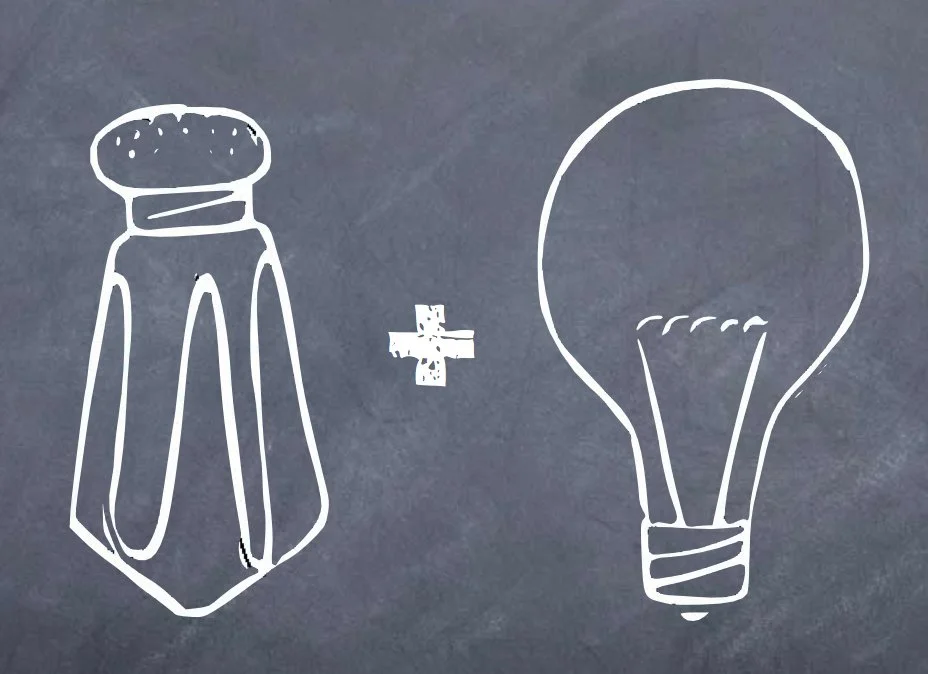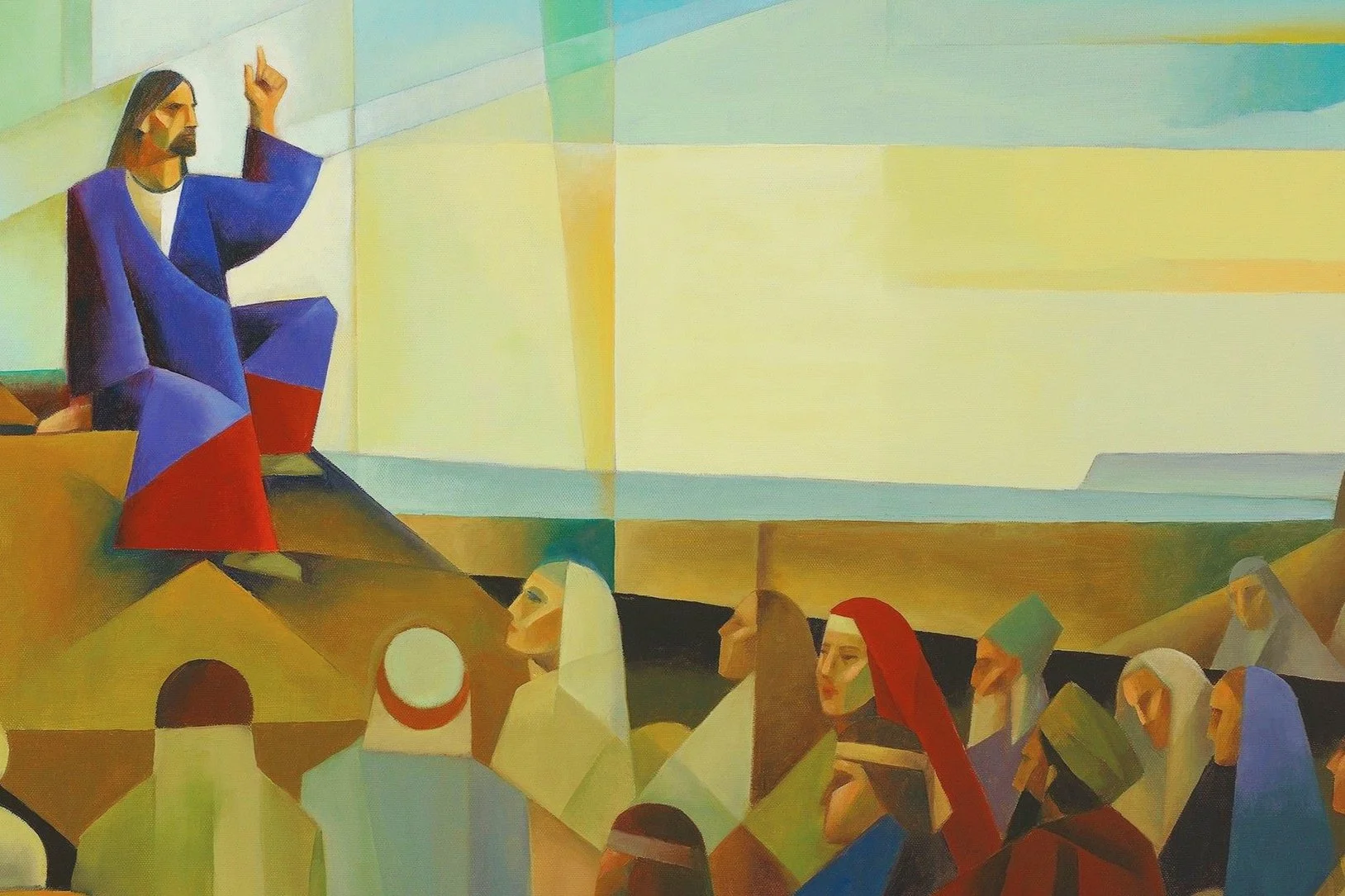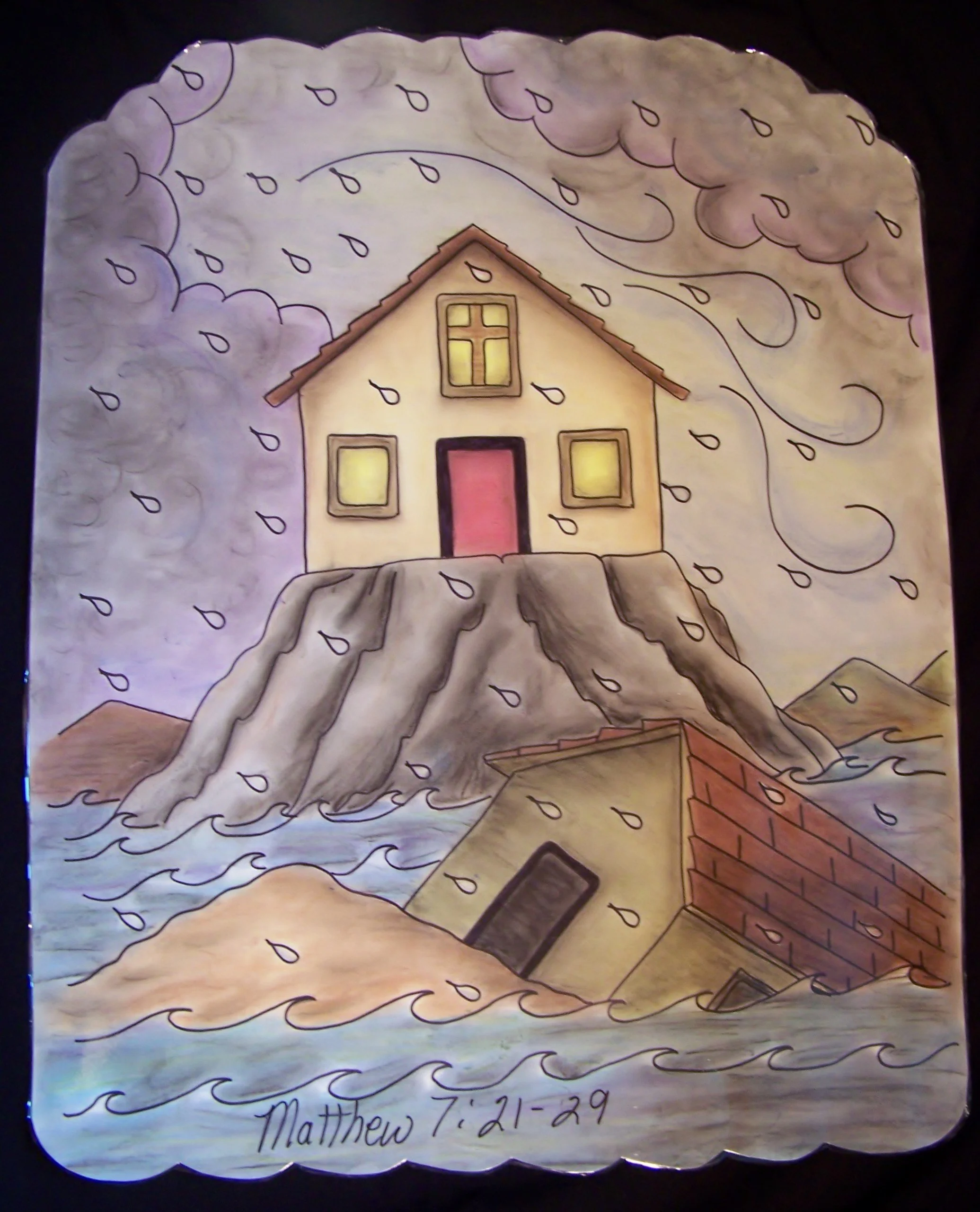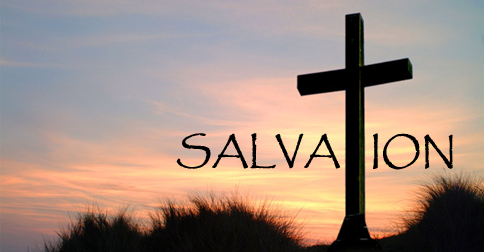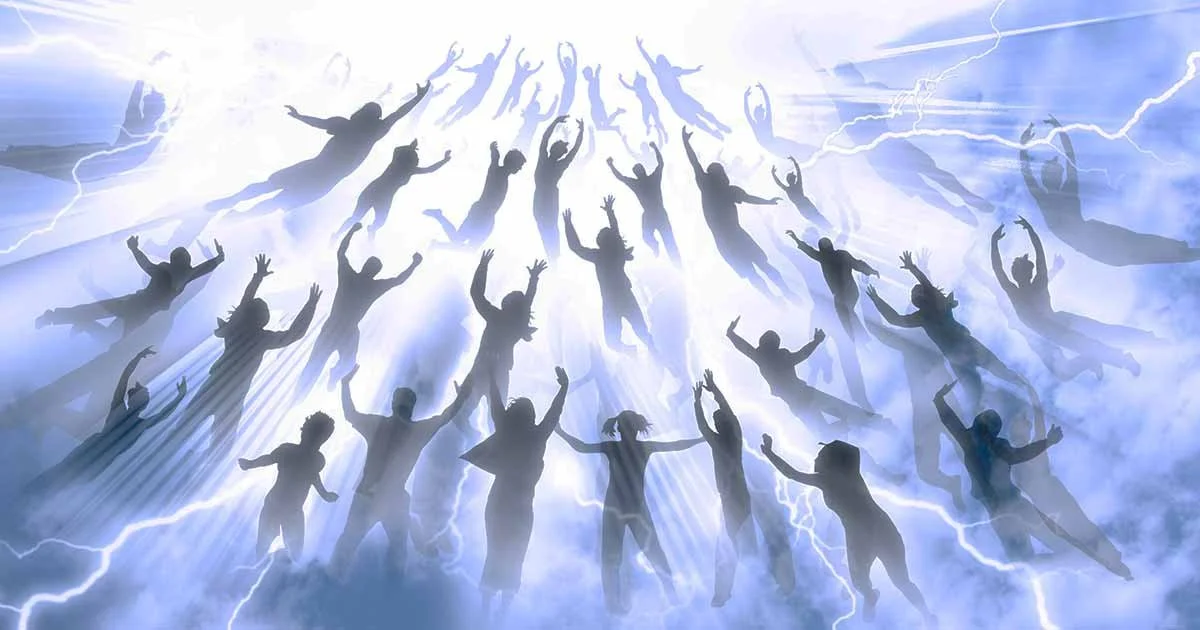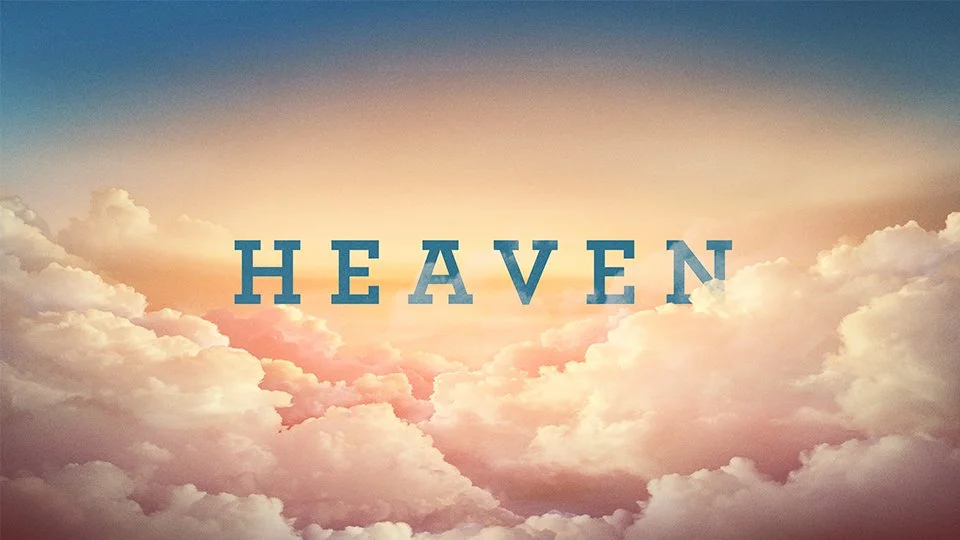You ARE Salt and Light
“You are the salt of the earth. But if the salt loses its saltiness, how can it be made salty again? …You are the light of the world. A town built on a hill cannot be hidden…Let your light shine before others, that they may see your good deeds and glorify your Father in heaven.”
These familiar words are not spoken to the crowd of admirers who gathered to see what Jesus might do next. They are not spoken to the onlookers who are interested in whatever new teaching Jesus would bring. Jesus spoke these words to his disciples, who answered the call to “follow him,” and stepped out of the crowd to be part of his kingdom movement. When I’ve thought about this short passage in the past, I’ve heard it in my mind, “Christians SHOULD be salt and light.” When Jesus addresses those who answered the call to follow him, he says, “You ARE salt and light.” In that context, he then says that salt which loses its saltiness, is “no longer good for anything, except to be thrown out and trampled underfoot.”
We’ve already been to the end of Jesus’s sermon where he says that those who hear his words and put them into practice are wise and those who hear his words and don’t put them into practice are foolish. He begins his sermon with making sure those who have answered the call know that they are blessed by God. This blessing is the one thing that truly matters in this life and becomes the foundation in which all things are done. You can only attempt to live out the sermon on the mount if you first know that the one who calls you to practice the sermon is the one who empowers you to practice it through his love.
Jesus says we are salt and light. This is our vocation and reality. Those who practice the sermon will live in the world in such a way that the world is changed. Throughout the sermon, Jesus will address heart issues that lead to breaking the law. When we create rules that only change outward actions we leave the heart unchanged and it doesn’t take much for the surface of our lives to be scratched and the ways of the world to pour out of us. It seems as though each generation of Christians create a list of markers that people must follow which signify who is “in” and who is “out.” These lists give us a sense of control rather than calling us to a place of submission to the transforming work of Christ. When we allow Jesus to call us to a place of heart transformation in the Sermon on the Mount, we become a community of Christ’s transformative work, and cannot help but be salt and light in the world.
I’m wrestling with this next thing I’m going to say but I want to offer it for you to wrestle with it as well. “If you set out to be light, you will only blind people. If you set out to be transformed by Christ, he will work through you to illuminate the world.” What I mean is this: when we make rules for what it looks like to be light we focus more on a person’s actions. A person can act righteous, while their heart is sour, and they end up being further from the kingdom of heaven. Most of this thinking comes from what Jesus says in 7:21-23 where people will point to the things they did for God and Jesus responds with “I never knew you. Away from me, you evildoers!” It seems as though Jesus is giving warning that the most important thing is to know him and be transformed by following close to him. Keeping right action apart from keeping close to Jesus is a way of keeping some kind of control in your life rather than submitting your need for control to Jesus and allowing him to move you. When we know Jesus, the natural outcome is to be what we’ve become in Christ: Salt and Light.
The question from this section has been posed this way: Are Christians so separate from the world that they can’t make any difference in the world? Or, have Christians become so much like the world that they are not different enough to make any difference?
Who is Blessed in the Kingdom of Heaven?
We established this last week that Jesus intends for us to hear his words from the Sermon on the Mount and put them into practice. This makes us wise. Looking to the context of Matthew for the sermon, Jesus is proclaiming the Kingdom of Heaven come near. This sermon is therefore a calling to live life through this Kingdom ethic. The one who calls us to live the sermon is also the one who empowers us to live the sermon. When the community of believers practice this sermon together, we become a witness to God’s reign here “one earth as it is in heaven.” Like Moses calling people to relationship with God and giving them the law, Jesus goes up on the mountain and those who answer his call to follow him step forward from the crowd to receive his words (5:1-2).
Jesus takes his place up on the mountainside, those who answer the call to follow him step out of the crowd, and Jesus begins to speak about what life in the Kingdom looks like. His public speaking up to this point has pointed to the Kingdom of Heaven coming near and those who step forward are ready to hear more. I want to pause for a moment to remind us of who is now at the feet of Jesus ready to hear these words. I’ve always pictured the “Chosen Twelve” as the main people sitting at his feet, but Matthew isn’t called till chapter nine and the distinguishing of “The Twelve” doesn’t happen till chapter ten. Skim Matt 4:18-25 and see who all is there. As Jesus begins to share what the Kingdom of Heaven looks like, he begins with announcing who is blessed.
If you were going to start a new nation of people, who would you signify as blessed in that new community? Who would you set apart as the most important? Here’s a quick list off the top of my head for those our society see as blessed:
Blessed are the rich,
for they will have influence and power.
Blessed are those with a large social media following,
for they will have a voice in society.
Blessed are those who are bold, outspoken, and get the job done,
for they will be promoted to management positions.
Blessed are those who are ruthless in their victory for their group,
for they will give victory to reclaim our identity.
Blessed are those who are willing to take up arms,
for they are good people who are willing to fight for what is right.
Blessed are the educated,
for they with be given special honor.
Blessed are those who are quick and clear in speech,
for they will obliterate our rivals and pave the way for victory.
We tend to see people as blessed who have their lives together, money in their pockets, influence in society, and can move the culture forward to where it needs to be. This wasn’t too different in the ancient world. If you are creating a new nation of people, you would expect the cream to rise to the top. They receive positions of influence and power. You look for such people to make up your society and shape it. Every society has some form of class system, and every group knows their place.
What does it look like in the Kingdom of Heaven? Jesus begins with signifying who is blessed. Look again at who all makes up the crowd: lame, sick, diseased, demon-possessed, rejected, marginalized people…and a wildly diverse group of others from all over. Jesus addresses these people by affirming their identity in the Kingdom as those who are blessed. Most of these people have never considered themselves blessed. Jesus’s initial message in the Sermon on the Mount is this:
1. When the Kingdom comes, do not be surprised by who is included. These are the types of people you’re going to find. They are at home in the Kingdom.
2. If you’re going to hear these words of mine and put them into practice (7:24-27), then you need to begin by knowing something at the core of who you are. You are blessed. God, the creator of the universe, is especially fond of you and has invited you to be in this Kingdom.
3. This Kingdom is going to look different from any kingdom in this world. The values of reconciliation, peacemaking, mercy, and righteousness will be some of the many different markers of citizens of the Kingdom of Heaven.
One word of caution as we turn to the “Beatitudes.” This is not a list of attributes that you should aspire to. Some teachers and preachers in the past have used to phrase, “The beatitudes are attitudes you are to be.” While cute, it is not accurate. “Beatitude” is a Latin word carried over as a title for this section meaning, “supreme blessedness.” Don’t be surprised if those who have chosen to answer the call to follow Jesus turn out to be peacemakers, merciful, and those thirst for making the world right (righteousness). Celebrate that there is a place for the poor, mourning, meek, and pure in heart because they bring remind us of our connectedness in the Kingdom and our need for one another. Find value in those who don’t speak up too quickly and see what value these people add to community life. You’ll find the Kingdom of Heaven richer for it.
Sermon on the Mount - Beginning at the End
There’s a famous quote by G.K. Chesterton that often shakes me up a bit in my walk with Christ: “The Christian ideal has not been tried and found wanting. It has been found difficult; and left untried.” This rattles me into remembering that Jesus called us to follow him in every aspect of our lives. There is nothing we can do to earn our salvation, but we are called to be different. To what extent are we to work at this? This debate has been ongoing for thousands of years within Christianity and we must always return to the teachings of Jesus to see how we are to live.
For much of my life, and I assume for a lot of yours as well, the focus of my Christian walk was “sin management.” This is where you know what the big sins are and you avoid them. For a long time, we shaped youth ministry around this focus: Let’s keep these kids as busy doing good stuff in the church so they don’t have time to sin. This focus of “avoiding sin” does very little to help people walk with Christ.
When Jesus calls us, he calls us into transformation. He calls us to be an act as his body in this world. He calls us to live as an example to this world of what it looks like to be part of the new creation. He calls us to become citizens in his Kingdom. What does it look like to live as citizens of his Kingdom? In this series on the Sermon on the Mount, we will walk through Jesus’s sermon together to see what kind of life we’re called to in following Jesus. We’re following a series of sermons presented by one of my professors, Randy Harris. If you would like to follow this series of lessons along with my blog, podcast, and sermons, you can access to the video series here. If you need access to Right Now Media, please email me at ryan@nodachurch.com and I’d be happy to give you access to this resource (even if you are not a member of our church).
I want this series to be challenging to each of us (myself especially). I don’t believe Jesus calls us to be passive in our faith but to be active. The Sermon on the Mount is a practical guide to the practice of the Christian faith. This practical guide, in the words of Chesterton above, “has been found difficult; and left untried.” We’re going to begin at the end of the sermon and then work our way through it in the coming weeks. Begin with Matthew 7:24-29 and answer these questions:
What does wisdom look like to Jesus?
What does it mean to “practice” something?
Does Jesus believe you can do what he calls you to do through this sermon?
Sometimes when I preach or teach, I can get too deep into the theological or historical framework of a concept of passage and the practical application can sometimes be lost through the nuance of presenting to a group of people with diverse backgrounds and worldviews. Take time this week to sit down and read the entire Sermon on the Mount in one sitting (Matthew 5-7). Make a small note on the sections you personally find the hardest. Throughout this series sit with those passages and allow the Holy Spirit to guide you into why they are a struggle for you. What are you resisting? What would life look like if you took that passage seriously? Does that give you joy, peace, or does it scare you? The best way to approach this sermon is to allow it to speak directly to you and not to others.
Will you let the words of Jesus challenge you into a deeper practice of the Christian faith to where your walk with Jesus makes you look more like him?
Randy Harris’s book Living Jesus - Amazon
Hope of the Church
Each week, I have worked to establish that biblical hope points toward the restoration and redemption of God’s good creation rather than our souls escaping our bodies for a spiritualized, body-less, existence. In the resurrection, according to 1 Cor 15, our bodies will be raised in the Spirit where the fullness of our existence will be realized. The spiritual and the physical will be brought together in the new heavens and new earth and God’s presence will be with his creation as he always intended for it to be. The images at the end of Revelation are of “New Jerusalem” coming down from heaven and there being no need for a temple to contain God’s presence. The proclamation from the throne is of Christ “making all things new!” and the river of the waters of life flow freely bringing healing to all the nations.
This week we will wrap up this series on Reclaiming Biblical Hope by talking about “The Hope of the Church.” I will not be preaching this week, but I wanted to share some of my reflections to help you study and reflect for this Sunday. I know Nick will to a great job!
What is the purpose of the Church? At different points in my life, I have answered this question differently. What we believe our end goal is determines our answer. When the focus is keeping people out of hell, we lean toward sin management. When we focus on souls going to heaven, we tend toward hard sell tactics for quick conversions and largely ignore other issues going on in their lives. Each of these focuses (while simplified for the sake of my point) has a point in the larger discussion but standing alone the points are too narrow. The church sometimes gets viewed as a kind of holy holding station where God’s people bide their time till we can escape this place. This view of Christianity has brought the often-quoted critique from Oliver Wendell Holmes Jr., “Some people are so heavenly minded that they are no earthly good.”
In Ephesians, Paul paints a picture of God bringing the world to right under Jesus Christ (1:10), and his people being his handywork through what they accomplish in building for the kingdom (2:10). Together, we are the place where God dwells (2:22) and carry his presence into the world. The work we do for God in the world, to bring redemption and reconciliation to God’s creation, is not work that is done in vain because God will harvest every seed in the new creation that we plant now. This is why Paul, in 1 Cor 15:58, says, “Therefore, my brothers and sisters, stand firm. Let nothing move you. Always give yourselves fully to the work of the Lord, because you know that your labor in the Lord is not in vain.”
The world that does not know God is likely more drawn to God when they see concrete examples of Christians taking care of those in need, listening to those who say they are oppressed, dealing with hunger in the world, aiding the poor and sick, and living in peace. They are more so drawn toward God when we live as signposts pointing to what is to come in God’s redeemed creation than if they see us fighting over doctrinal issues or getting tangled up in ugly politics.
The church is the place where God’s good creation is explored and put on display as a taste of what is to come. That involves us doing the dirty work of cultivating genuine relationships with one another when there are stark differences in background and worldview. By contrast to the quote above, I would ask if some Christians are so focused on winning in the cultural battles of this current world that we are little to no good for the kingdom work God has called us to?
The Church is the place where we share the presence of God together as his new temple. His presence allows us to be refined, transformed, and made new for life in Christ. The Church is the place where we explore the depths of God’s love, peace, goodness, compassion, and power to then go and share it with the world. N. T. Wright says, “God is going to take everything in this present world that bears the mark of his love, goodness, power, and loving compassion and use it as the raw material out of which the new world will be made.” What are some of these things God will use to form the new world?
Hope of Salvation
There is a topic in Christianity that I am a bit uncomfortable with because I don’t like how comfortable others are with it. When Christ returns, he will come to bring judgement on this creation. There are some who are too eager for this judgement because they want to see “bad people” get their due. Others look at Jesus’s ministry and are quick to point out that Jesus’s harshest words are towards those who claim to be the leaders of God’s people. When the coming judgement comes up, we might be quick to move to the scenes of a wrathful God where Jesus steps in and takes our place of punishment. Then we read in John 5 that God the Father has given Jesus the authority to come down and be judge the dead (5:27). This begins to mess with our theology a bit, doesn’t it?
That first paragraph is a bit of a vomiting of words (sorry for the imagery). I’ve been wrestling with how to approach this for a bit now. We have to talk about the final judgement and what the hope of salvation is. Take a moment to read these three passages. If you want to take a little more time, read them in their fuller contexts.
John 5:16-30
2 Corinthians 5:6-10
Acts 17:29-31
These are a small sampling of the many passages that talk about the coming judgment. In the view that Jesus receives our judgment from the wrathful God, Jesus is not the judge. Have we gotten this wrong? I don’t think we have but we haven’t fully gotten it correct. Here’s my basic understanding. We do nothing to earn our way into the Kingdom of God. We all got here by the same grace given to us through Jesus Christ. Now that we’ve been brought in, there are expectations of us to work in the Kingdom to join God in redeeming the world.
As you work through these passages, remember the overarching theme of hope we’ve been talking about over the last few weeks. God is bringing redemption to the brokenness of creation. In this light, how is judgement a good thing? How can you talk about judgement being good news? Who is it good news for?
So, what about salvation? How does this fit into the restorative work that God has called us to be part of? There have been times when I’ve heard Christian hope presented in a way that is all about what the person gets out of it and it has, at times, come across as a little on the selfish side. We sometimes put too much emphasis on the reward, almost to the point that it wouldn’t matter if God were absent from our reward, we’d be ok with it as long as we were in paradise. I’m overselling this point a bit to make a point.
When we talk about salvation, we must talk about both salvation from and salvation to. We receive salvation from death. We also receive salvation to be part of God’s Kingdom movement to restore the world. Read Ephesians 2, focusing specifically on 1-10. We are brought into the Kingdom of God to be citizens together. As God’s Kingdom people, we are his handiwork to fulfill the work he is doing in the world to bring redemption and reconciliation.
How does this view of judgement and salvation hold together and shape what the Christian life is all about?
Hope of Jesus's Second Coming
When God created, he completed this creation calling it “Good.” Sin broke the goodness of the creation and separated the creation from the God who created it. God does not give up on his creation. The trajectory of Scripture is that God is relentless in bringing restoration to the place where he chose to live in relationship with the pinnacle of his creation, humanity.
God chose humanity in the garden to be gardeners with him, to bring life and growth, and to take care of the creation. In his relentless pursuit to redeem creation, he continued to work with the people in his creation, though they were part of the problem. Throughout the First Testament, God worked through flawed and messed up people to bring about the redemption he desired. The Scriptures are peppered with images of God’s restored creation, where his presence has returned to the temple, and life flows from his throne (Ezekiel 47, Isaiah 11, 65-66). God’s people, Israel, were supposed to live as an example of what it looked like to have the presence of God. They were called to be an example to the nations of the Goodness of God’s creation. But they continued to want to be like the nations.
When the Gospel writers write about the life and ministry of Jesus, they use imagery of Moses and Israel to show how Jesus fulfills what Israel failed to live up to. Jesus proclaims the Kingdom coming near and brings restoration to broken people. This restoration is both physical and spiritual. The New Testament writers continue the message of Kingdom come on earth as it is in heaven with depictions of restoration and new creation (1 Cor 15, 2 Cor 5, Rev 21-22, 2 Peter 3). The Church then has become the people who have received the hope of God’s Kingdom come but not fully. We carry the message of hope to a world in disorder. What is that message of hope?
Like Israel, we are called to be a light to the nations (Isaiah 49:6; Matt 5:14-16), a Royal Priesthood and Holy Nation (Exodus 19:6; 1 Peter 2:9). We are to live as witnesses to the restoration of God’s Good Creation. When the world looks at the church, they should see a signpost pointing to what is to come. When I come upon a passage that is difficult to interpret or could have different meanings, this is the lens through which I examine the passage. That will be a study for another time.
This week, we are looking at the hope we have in the second coming of Jesus. Consider everything I’ve written up to this point and all we have covered in this series so far while you read these passages about the Second Coming.
Acts 1:4-11
What are the major focuses of this passage? Holy Spirit, Kingdom Coming, and Jesus’s Return. This opening scene sets the stage for all that will happen in Acts. How do each of these elements play into the mission of the Church?
“This same Jesus, who has been taken from you into heaven, will come back in the same way you have seen him go into heaven.” Does this passage tell us where we will go from there?
Matthew 24:36-41
This passage is one of the major foundations for “Rapture Theology” where good people will be taken from the earth to go away with Jesus to heaven. Take a moment to get the full context of the “days of Noah” and reread the “that is how it will be at the coming of the Son of Man.” Noah and Co. enter the ark. Who does v. 39 say is taken away? Therefore, who is left behind?
Throughout the history of Israel, has being “taken” ever been a good thing?
1 Thess 4:13-18
After Jesus comes down and we meet him in the air, does this passage say which direction we will go from there?
In the ancient world when a king would return to his kingdom after being away for a time, the watchman would sound the trumpet signaling the king’s return. The king’s people would then parade out of the city, meeting him on the road, to welcome the king back to his kingdom. How does this context shape how this passage might be read?
Hope of Heaven
I remember being at a huge youth conference with thousands of people all worshipping at the same time. It was breathtaking and spiritually moving. I undeniably felt close to God. The speaker walked out on stage and said, “Isn’t this wonderful! This is what heaven will be like!” Looking back, I get where he was coming from, and probably what he meant, but I remember hearing one of my friends say, “I might take my chances in the other place.”
While I love good praise and worship, it did seem a bit dull that this would be all we would be doing for eternity. We get some of these images from parts of the bible called “Apocalyptic literature” where a window is being opened into the heavenly reality of what is going on around us rather than a peak at the future that is to come. The books of Daniel, Isaiah, and Revelation are filled with these images so that the hearers of the message can have a glimpse behind the curtain, so to speak, of what is really going on in the world. This is a different set of lessons for a different time. All I want to point to here is that there should be caution in reading books like Revelation as a prediction of the future because that is not the intention of that genre of writing.
There was a movement in Christianity that taught that God was far off in the distance. He set the world in motion and then retired to his heaven where he did not interact with his creation. This thread of Christian belief was common amongst many of the founding fathers of our country and has continued to have a hold in many of our churches. These teachings creep up when questions about the interaction of the Holy Spirit come up. It is often articulated, “The working of the Holy Spirit ceased when we received the Bible.” What happens to our prayer life when we believe God is far off in the distance and does not care to interact with us in his creation? How does this hinder a relationship with God? What does this do to our hope?
This week, we will look at the power of heaven and how it brings hope to us here and now. As we prepare to study more about heaven, here are some questions to begin with:
Where do your pictures of heaven come from?
Where is heaven?
When you think about how heaven is often described, is it self-gratifying and self-serving?
I really like how NT Wright describes heaven in his introduction to the participants guide of “Surprised by Hope: The Hope of Heaven”:
Heaven will not be a boring place, off in distant space, where we play harps, sit on clouds, and sing the same stanza of the same song forever. Heaven is God’s space, filled with peace, justice, and beauty. Heaven and earth are overlapping realities and the resurrection of Jesus has connected these two spheres more closely than we know.
Heaven is the control room of earth and God’s sovereign rule is present today. As we learn to walk with Jesus and live as God’s people in this world, the kingdom plan of God continues to unfold and be revealed. We are not waiting to fly off to heaven one day, but heaven is breaking into our present circumstances with each passing moment. If we pay close attention, we will see that heaven and earth are overlapping today.
One of the ways God brings his kingdom, “on earth as it is in heaven,” is through his people. You and I are invited to be vehicles God can use to bring his love, justice, and beauty to a world desperate for all of these things. The hope of heaven is not something we are waiting for, but it is what we enter each day as we follow Jesus and let his heavenly plans unfold in us.
Hope of the Resurrection
I think it was a Tom and Jerry cartoon from when I was growing up that became the picture of the afterlife for most of my youth. It could have been a different cartoon, or a collection of cartoons, but the scene is the same. The character gets hit with something and falls over dead. A non-physical form of the character rises from the body wearing a white robe, a halo, wings, and playing a harp. This was more or less what I pictured when I read scriptures like 1 Thessalonians 4:13-18 where Paul says, “the dead in Christ will rise first…we will be caught up together with them in the clouds to meet the Lord in the air.”
When the Gospels describe Jesus in his resurrection, he eats with people, touches them, and is a fully physical presence (to hundreds of people). He also moves through locked doors, appears, and disappears from people’s presence. We don’t have words to describe what Jesus is able to do and what he is like in his resurrection. This is apparent in the ample descriptions of what he was like where it seems like the writers are dancing around how to talk about it. So, when I say anything about the resurrection, I do so fully aware that anything I say is foggy and one day will be made clear (1 Cor. 13:9-12). What I know is this. The more I look at the Resurrection of Jesus, the more I question my views of a harp-wielding, non-physical, shadowy rising of the dead.
Take a moment to read through 1 Corinthians 15 where Paul makes his argument for the Resurrection. There is a tone to this part of his letter that appears he sees belief in the Resurrection as central to the Gospel itself. There were some in Corinth who denied that there would be a Resurrection for those who are in Christ (15:12-14). “If Christ has not been raised, our preaching is useless and so is your faith.” When the Gospel is articulated, most of the time the focus seems to be solely placed on Jesus dying to save us from our sins. While this is true, there is often no mention of the Resurrection. This Sunday, we’re going to talk about the resurrection:
What role does the Resurrection of Jesus play in the process of salvation?
What is the Resurrection?
What does Jesus’s Resurrection tell us about what will happen to us when we die?
Does it even matter?
Jesus didn’t just come to save us from our sins. He came to conquer the enemy that has subjected the world to suffering. The final enemy to be destroyed is death. He came to bring restoration to a world broken by sin and death. When God created his perfect creation, it seems to have the physical and spiritual perfectly together as one. In the brokenness of the creation, there seems to be a separation between the physical and the spiritual. Jesus’s conquering of death, and the divisions that it brings, brings a reuniting of the physical and spiritual together in the Resurrected body. Look at how Paul articulates it in 15:42-49. This broken, perishable body, we see as “natural” will be planted (buried) and when it is raised by the power of the Spirit (the same Spirit that raised Jesus) it will be raised imperishable in the same way Jesus was raised.
There are a lot of directions we can go and a lot more ground that needs to be covered in this discussion. So, I’m going to make you do some of the work. Here are some questions to wrestle with as you read and re read 1 Corinthians 15:
If the tomb was empty, then what will happen to our bodies when we are raised with Christ?
Same question from a different view – If our hope is for our souls to leave our bodies to go to heaven, why was the tomb empty?
What does it mean that our bodies will be raised spiritual?
Jesus’s Resurrection is the firstfruits of those who will be raised. His Resurrection is what we have to look forward to. We are given a glimpse, a taste, of this Resurrection to come through the indwelling of the Spirit within us. The Resurrection has already begun its transformation in you through the Spirit. Therefore, we are people who live life in the Spirit because of Jesus’s Resurrection as we anticipate the Resurrection promised to us in his return. As people of God, we live our lives as a testimony that Christ has Risen by bringing redemption to the brokenness we see in the world around us and breathing life into people.
Throughout this passage, Paul refers to Jesus as a “new Adam.” What implications does that imagery have when we see Christ’s mission as ushering in the “new heavens and new earth” and restoring God’s creation back to the goodness he created it to be?
Other passages to read and reflect on:
2 Corinthians 5
1 Thessalonians 4:13-18
2 Peter 3
June 19 - Hope for the World
When you think of Christian hope, there are a few things that likely come to mind. What happens after we die? Does that matter for here and now? What is heaven? What will it be like? Where is heaven? What is salvation? What is the church? What is the resurrection? What does any of this have to do with today?
When I bring up what happens when we die, I often get the response that it doesn’t matter too much because we will find out when we get there. In one since there is truth in that because we have no idea what things will fully be like (as Paul reminds us in 1 Corinthians 13:8-12). On the other hand, what we believe about what happens when we die shapes what we believe God is doing in the world today and how we should live our lives.
Over the next seven weeks we are going to go back to the Bible and look at some basics in Christian theology that sometimes is misunderstood. We are revisiting the foundations of Christian Hope. There are a lot of things in life that leave people feeling hopeless. Some big events of my lifetime: 9/11, Tsunami in India, Hurricane Katrina, 2008 crash, mass shootings, political tensions, the pandemic, and the like (as Paul would say) all have left people feeling hopeless. There are hundreds of other things I could add to this list. What message of hope do we have for people who are feeling hopeless? When we only offer people a future hope of what might come later our words are often received as empty. Is there hope for the here and now? What does the Bible have to say?
There are two types of hope found in scripture. First, hope is what lies ahead and is promised by a God who loves to bring hope to each of us. Second, hope is about how the Kingdom of God is breaking into our present-day realities where hope then spills out into the world today. We’ve tended to lean into the first aspect of hope while ignoring the second. What we believe about what happens in the world determines what we believe God is doing and what we are called to do in the world. We will be looking at a lot of scriptures in the coming weeks to establish a biblical foundation for hope but here are a few to investigate for this week: Isaiah 11, Revelation 21-22, and 1 Corinthians 15.
Paul’s imagery in 1 Corinthians 15 is something I want to hold throughout this series. All the good we do in this world is planted perishable for God to raise imperishable. Everything we do in bringing about visions of God’s good creation in this life will be raised in the New Creation. When God calls us to partner with him in bringing the new creation, it means that what we do in this world will be realized fully in the next. We aren’t merely rearranging chairs on a sinking ship. We are the people who are so invested in the hope to come that it spills out of us in the here and now. We are the people who live between God’s redemption in Christ on the cross and the redemption that will come in his second coming. The hope we share with others are sign posts pointing to what God has done, is doing, and will do in this world.
Over the next seven weeks we are going to cover these topics of hope following the video series by NT Wright, “Surprised by Hope.” You can watch the videos here. If you do not have Right Now Media, you can access it here. You can purchase a participant guide for this series here. Use this for your personal studies or as a small group study (now or in the near future). I recommend you watch these videos each week and study what the Bible says about the hope we have. I’ll continue to provide my blog and podcast to help prepare for Sunday’s lesson. Let’s dig deep and reconnect with the foundations of the Christian faith and the hope we have to offer the world.
June 19 – Hope for the World
June 26 – The Hope of the Resurrection
July 3 – The Hope of Heaven
July 10 – The Hope of Jesus’s Second Coming
July 17 – The Hope of Salvation
July 24 – The Hope of the Church
July 31 – Reclaiming Hope in the Church

